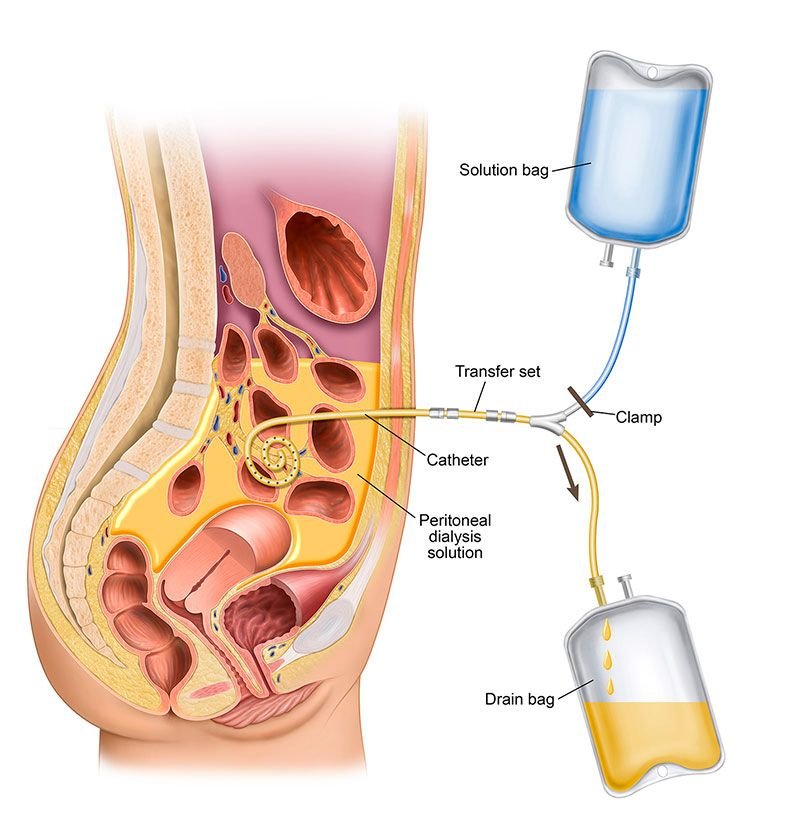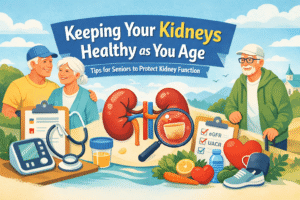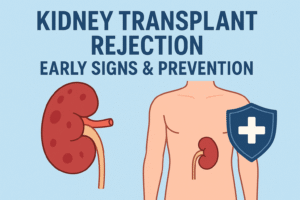Peritoneal Dialysis (PD) is a type of kidney replacement therapy which patients can safely and effectively do at home. Different from in-center hemodialysis, PD utilizes the lining of the abdomen as a filter to separate waste from blood. It provides independence, flexibility, and an enhanced quality of life.
At Southern Oklahoma Kidney Center, our nephrology team empowers patients to make choices regarding their dialysis options, including Peritoneal Dialysis at Home. This guide explains how PD works, who it is best suited for, and how to manage it successfully for optimal outcomes.
What Is Peritoneal Dialysis?
A layer of tissue called the peritoneum located in the abdomen serves as natural filters in the body. A unique liquid known as dialysate can be injected into your belly through a catheter. After several hours, this fluid—now filled with waste products—is expelled out and replaced with fresh fluid.
There are two main types of PD:
- Continuous Ambulatory Peritoneal Dialysis (CAPD): Done manually 3–5 times a day
- Automated Peritoneal Dialysis (APD): Performed at night using a machine while you sleep
At Southernokc Training Centers we train our patients so that they can select their preferred method and help them customize their lifestyles around their personal needs.
Who Is Eligible for Peritoneal Dialysis at Home?
Home peritoneal dialysis (PD) is best suited for patients who:
- Prefer less frequent visits to renal clinics.
- Travel frequently or require a greater degree of mobility in their everyday life.
- Have independent physical capabilities able to manage home PD procedures autonomously.
- Want more control over their daily schedules.
At Southern Oklahoma Kidney Center, we make sure each patient is medically and lifestyle assessed to establish if PD would indeed be favorable.
Advantages of Peritoneal Dialysis
For patients selecting PD at home, there are many advantages:
- Greater freedom regarding where treatments can be conducted – just as long as the area is clean and private.
- Scheduling can fit within normal waking hours or even overnight shifts.
- Less strenuous on the circulatory system compared to other forms of dialysis due to its continuous nature.
- Better preservation of remaining kidney function.
- Fewer dietary restrictions resulting from more regular waste removal.
The benefits of P at D are especially important for patients with diabetes, needing consistent gentle fluid management which is discussed in detail on our Diabetes & Kidney Disease section.
What to Expect During Training
Training is an integral step in the process of initiating Peritoneal Dialysis at Home (PD-H). It typically occurs over the course of 1-2 weeks and includes:
- Exchange procedures, either manual or automated
- Management of the catheter with infection prevention strategies
- Identifying possible complications such as peritonitis
- Fluid input and output tracking for recordkeeping
SouthernOKC’s care team provides personalized, hands-on guidance so that you and your caregiver feel fully equipped.
Safety and Infection Prevention
While performing PD-H may be considered low risk, maintaining safety and infection control practices remains paramount. Other recommendations include:
- Not touching any supplied items without first washing hands
- Daily rinse/cleaning drying of the catheter port where cleansing will be performed in a sterile fashion
- Using sterility for all forms of exchange
Observance for unexplained high temperatures (fever), cloudy fluid drainage from stomach cavity voids, or abdominal discomfort (pain) must not go unmonitored
On the anemia section page from the Kidney Disease & Anemia explains how anemia may further complicate kidney problems emphasizing why effective dialysis is critical in managing daily fatigue levels as well as energy levels.
Home Setup And Provided Supplies
Your care team will support you with:
- Setting up a designated area free from clutter and clean for use
- Monthly supplies which include dialysate, subcutaneous tubing lines, protective masks, disinfectants etc.
- Proper storage techniques including disposal protocols for used materials s
- SouthernOKC assists in coordinating with other home supply companies to make certain timely delivery meets your expectations.
Peritoneal Dialysis at Home enables you to take control of your life with kidney failure while receiving comprehensive support from knowledgeable professionals. At Southern OKC, the multidisciplinary care team is focused on empowering each patient to manage PD in a confident and comfortable manner.
To learn more, make an appointment today with Southern Oklahoma Kidney Center for a full consultation and discuss whether this innovative therapy is suitable for your needs.




